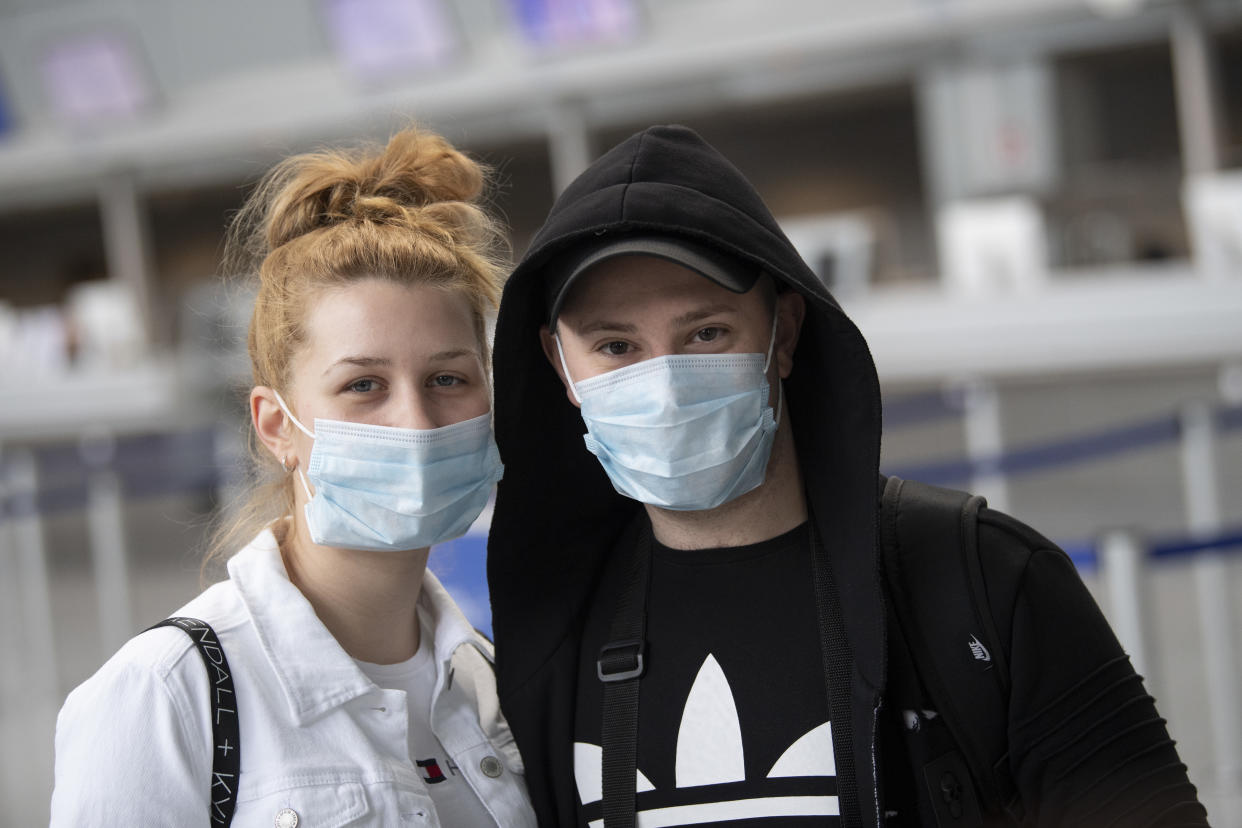Coronavirus outbreak 'could be stemmed by bowing over shaking hands', World Health Organization says

The World Health Organization (WHO) is urging people to adopt new ways of greeting amid the coronavirus outbreak.
The new strain – called Covid-19 – primarily spreads via infected droplets that have been coughed or sneezed out by a patient.
With many of us taught to “catch” our sneezes and coughs in our hands from a young age, shaking hands may be causing the virus to infect our colleagues, friends and new acquaintances.
To stem the outbreak, the WHO is encouraging people to “avoid physical contact” and instead adopt a “safe greeting” like a bow, nod or wave.
Latest coronavirus news, updates and advice
Live: Follow all the latest updates from the UK and around the world
Fact-checker: The number of Covid-19 cases in your local area
Explained: Symptoms, latest advice and how it compares to the flu
At the start of the now “pandemic”, everyone from Robbie Williams to European health chiefs were pictured “bumping elbows” as way of “saying hello” to their well-wishers.
The WHO’s director-general Dr Tedros Adhanom Ghebreyesus warned this puts people too close to potential patients, with a minimum one metre (3.2ft) “social distance” being recommended to stay virus-free.
“I like to put my hand on my heart when I greet people these days” he tweeted.
Q: How should I greet another person to avoid catching the new #coronavirus?
👉🏽https://t.co/94zZioMvuA… #KnowtheFacts #COVID19 pic.twitter.com/qFPkqGqGKQ— World Health Organization (WHO) (@WHO) March 11, 2020
Covid-19 is thought to have emerged at a seafood and live animal market in the Chinese city Wuhan, capital of Hubei province, at the end of last year.
Since the outbreak began, more than 128,000 people worldwide have tested positive for the virus, according to John Hopkins University data.
Of these cases, over 69,000 have “recovered”.
The bulk of the incidences are in mainland China, which has recorded more than 80,900 patients since the outbreak was identified.
Cases have been plateauing in China since the end of February, with just eight new patients being diagnosed throughout the country overnight.
Outbreaks are occurring elsewhere, however, with Italy – the second worst affected country – having more than 12,000 confirmed cases and over 1,000 deaths.
More than 29,000 tests have been carried out in the UK, with 596 coming back positive and 10 deaths.
Worldwide, more than 100 countries across every inhabited continent have reported a patient.
Of these, 14 nations have had just one confirmed case.
Globally, the death toll has exceeded 4,700.
During #COVID19, I am opting for hand-on-heart instead of hand shakes.
The photo of @Hughcevans and me was taken a year ago when he visited @WHO.
Thanks for noting this and special thanks for taking protective measures against #coronavirus. https://t.co/Bz0SAsYyKY— Tedros Adhanom Ghebreyesus (@DrTedros) March 12, 2020
With the coronavirus outbreak making headlines all over the world, many public figures have been pictured avoiding shaking hands.
Prince Charles offered presenters Ant and Dec a namaste greeting at the Prince’s Trust Awards in London on Wednesday.
His son Prince Harry did a not-recommended elbow bump with DJ Craig David at Westminster Abbey’s Commonwealth service a few days before.
Before the WHO’s tweet, officials gave little away as to how we should be greeting.
Infectious-disease experts were recommending people sneeze into their elbow rather than their hands long before Covid-19 came about, making “elbow bumps” all the more risky.

Covid-19 has no “set” treatment, making prevention particularly important.
Early data suggests four out of five cases are mild, with a patient’s immune system naturally fighting off the virus.
Those that do require hospitalisation are given “supportive care”, like ventilation, while their immune system gets to work.
As well as social distancing, good hand-washing and avoiding touching your face are the key prevention methods.
Covid-19 enters the body via the nose, mouth or eyes.
The virus may be inhaled from infected droplets or individuals could “infect themselves” by touching these parts of their body with contaminated hands.
When out and about, hand sanitisers may be effective providing they contain at least 60% alcohol.

What is the new coronavirus Covid-19?
Coronaviruses are a class of viruses, with Covid-19 one of seven strains that are known to infect humans.
Others cause the common cold, as well as severe acute respiratory syndrome (Sars), which killed 774 people during its 2002/3 outbreak.
Most of those who initially caught Covid-19 worked at, or visited, the “wet market” in Wuhan.
Infected droplets from a cough or sneeze is the main method of transmission, however, there is also evidence the virus may spread in faeces and urine.
Symptoms are vague and flu-like, including fever, cough and slight breathlessness.
In severe cases, pneumonia can come about when the infection causes the alveoli (air sacs) in the lungs to become inflamed and filled with fluid or pus.
The lungs then struggle to draw in air, resulting in reduced oxygen in the bloodstream.
Patients who are succumbing to the infection tend to be elderly or have underlying health concerns.




